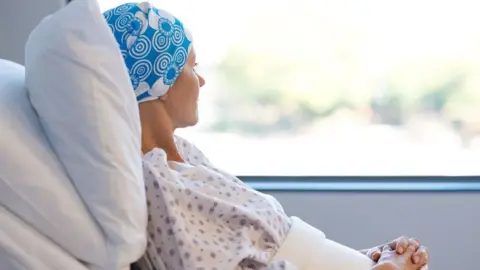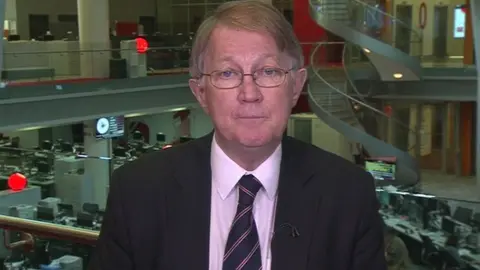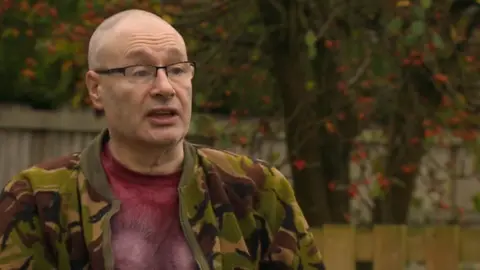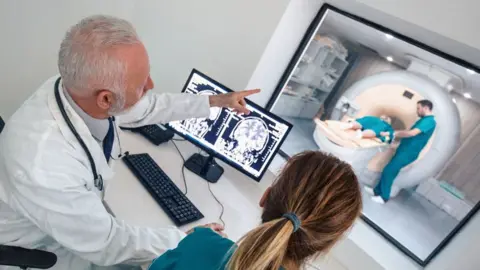Covid could see cancer survival rate fall, says professor
 Getty Images
Getty ImagesThe NHS's former cancer director is concerned England could see the first decrease in survival rates for decades because of the Covid pandemic.
In England, 60% fewer patients with suspected cancer were seen in April compared with the same month in 2019.
Prof Sir Mike Richards told BBC Politics East the drop "will have an impact on cancer survival rates".
NHS England said while some people were put off coming forward for checks, the NHS message was "do not delay".

Sir Mike, who was national cancer director in the Department of Health between 1999 and 2013, said it was too early to put a figure on what the overall effect on cancer survival would be but he said "what we do know is that over the last 20, 30, 40 years, cancer survival rates in this country have been going up year on year".
"There is obviously a concern that may actually go down again in the year 2020. But we won't know that for some time," he said.
"We know cancer has been hard hit during the pandemic. As soon as the first wave hit, patients weren't coming forward to their GPs so they weren't getting referred to hospitals.
"Diagnostic services were also hit. Surgery was much more difficult."
Things have picked up since then, he said, and added: "Instead of the steady rise that we have seen it is possible we could see some decline."

This is not routine - I've got signs of a brain tumour

Colin Allison, 64, from Swardeston in Norfolk, has a brain tumour touching his upper spine.
In February, he went to his GP with symptoms but because of Covid he could not get a scan until July.
"They phoned me a few days beforehand and said 'we're cancelling all routine MRIs'," he said.
"But I said 'it's not routine - I've got symptoms coming back of a brain tumour'."
As Mr Allison waited for a scan, symptoms such as double vision worsened. He said he was now waiting for an operation.
"Yes, Covid-19 can be life threatening," he said. "But how many people are dying from cancer this year?"
The Norfolk and Norwich University Hospital NHS Foundation Trust said it had increased its MRI capacity after some diagnostic services were hit by the first wave of the pandemic.
It said it was investing £8m to replace its CT and MRI scanners with newer imaging equipment and added: "We would welcome Mr Allison contacting us so we can look into his concerns."

Fear of catching Covid-19 made the over-65s in particular reluctant to see their GPs during the initial stages of the outbreak, and cancer was most common in older age groups, Sir Mike said.
But he praised the way the NHS had "done a great job" to recover from that first wave, with latest data indicating cancer services were getting back to normal.
"In this country in any case we are behind other countries in our cancer survival rates, so there is a major catching up job to do on that anyway," he said.
"A lot of that is about making sure patients can get diagnosed earlier."
 Getty Images
Getty ImagesHe highlighted the shortage of scanning equipment in a recent report for NHS England. "The figures are very stark," he said.
It showed that in 2017 England was at the bottom of a table of 23 developed countries for CT (Computerized Tomography) scanners per 100,000 population.
Chancellor Rishi Sunak's Spending Review on Wednesday announced extra investment in diagnostic equipment as part of a £6.3bn increase in NHS spending for 2021-22.
An NHS England spokeswoman said: "Cancer survival rates are at a record high in England and the number of people being treated for cancer is now back to usual levels of activity.
"The NHS message to the public has always been clear - do not delay, help us to help you by coming forward for care."
Politics East airs on BBC One in the East on Sunday 29 November at 10:00 GMT and can be viewed on iPlayer afterwards.
